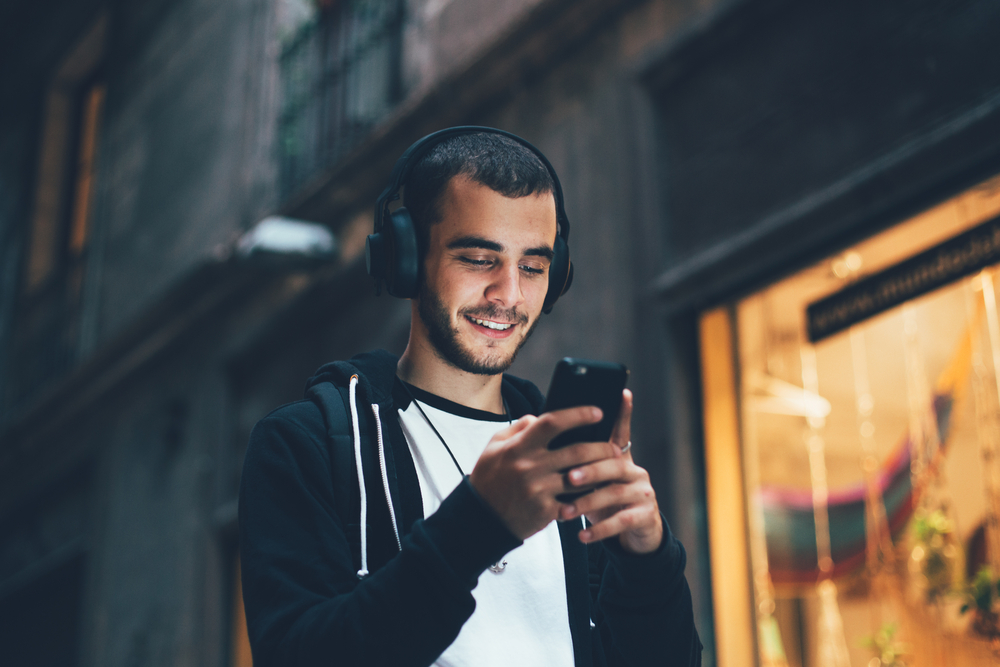
Meet James, a passionate music enthusiast who seamlessly incorporates Spotify into his work regimen, switches to Pandora during his jogs, and curates playlists for every instance conceivable, from cardio programs to cooking and even gaming. His headphones are his continual companions, converting his life into a completely soundtracked experience. James takes comfort and delight in the captivating realm of music, but the very source of his happiness might be damaging his treasured ability to hear without him realizing it.
Regarding our ears, there are both safe and dangerous ways to indulge in music. Unfortunately, a, any us lean towards the second approach.
What is the connection between prolonged exposure to music and hearing loss?
Prolonged exposure to loud music can result in a decline in your auditory ability. We’re used to thinking of hearing loss as a problem associated with growing old, but an increasing amount of research reveals that it’s actually the build-up of noise-related damage that is the issue here and not anything inherent in the process of aging.
It also turns out that younger ears are especially vulnerable to noise-related damage (they’re still forming, after all). However, teenagers tend to ignore the possible dangers of excessive noise over time. So there’s an epidemic of younger people with hearing loss, thanks, in part, to rampant high-volume headphone use.
Can one listen to music without any safety concerns?
Listening to music at full blast with no limitations is the most hazardous strategy. There is a way to enjoy to music more safely, which typically means decreasing the volume. The suggested safe volume levels are typically as follows:
- For Adults: No more than 40 hours of listening on a device, and maintain the volume lower than 80 dB.
- For Teens and Minors: You can still listen for 40 hours, but keep the volume level lower than 75 dB.
Breaking it down, you’re dealing with approximately 5 hours and 40 minutes of listening each day. Though it may seem excessive, the time can go by surprisingly fast. In spite of this, most individuals possess a well-developed understanding of time management, a skill that is typically mastered during early childhood.
The more difficult aspect involves keeping track of your volume level. Devices like smartphones, computers, and TVs usually do not show volume in decibels. It’s assessed on some arbitrary scale. The range could be as wide as 1 to 100, or it could be as narrow as 1 to 16. You might not have any idea what the max volume on your device is, or how close to the max you are.
How to effectively track your music volume
Numerous free noise monitoring apps can be found for both iPhone and Android devices to tackle this problem. These apps offer real-time insights into ambient noise levels, empowering users to calibrate their music volume appropriately.
For this reason, many audiologists suggest utilizing one of the numerous noise level monitoring applications available at no cost. These widely obtainable apps, compatible with both iOS and Android platforms, provide instant sound-level feedback on the ambient noise around you. That way, you can monitor the dB level of your music in real time and make adjustments.
Comparing relative volumes: from garbage disposals to dishwasher
As example, 80 dB is roughly comparable to the noise produced by a common garbage disposal or dishwasher– audible, yet not excessively loud. Identifying this standard is essential, as it represents the limit beyond which hearing damage becomes a substantial danger.
So, being extra vigilant when exceeding this decibel threshold is important. Think about limiting exposure to excessively loud music by indulging in certain tracks at full volume rather than indulging in complete albums.
Recurring exposure to elevated volume levels can lead to hearing problems such as tinnitus and eventual hearing loss. By being aware of when our ears are at risk, we enable ourselves to make informed choices in order to promote safer listening habits.
Book an appointment for a hearing evaluation
For better prioritization of your hearing health, it is recommended to contact a hearing specialist to schedule a comprehensive hearing examination. Proactive measures like routine screenings can detect any possible issues early on, enabling timely interventions and individualized suggestions to safeguard your vital sense of hearing.